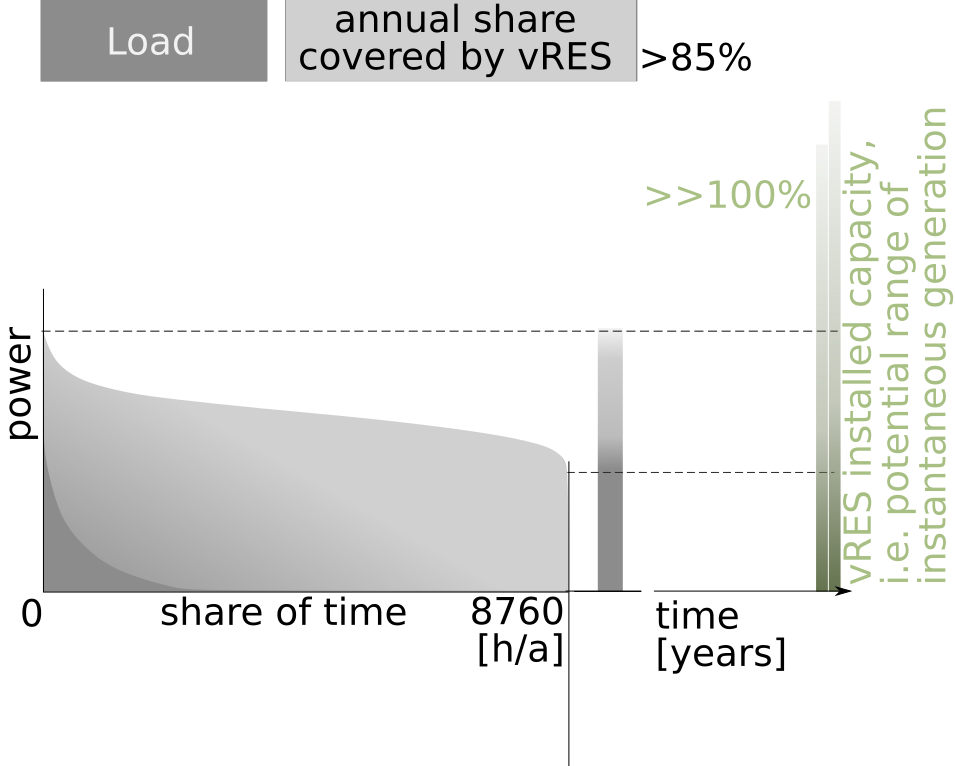
Indicators and Milestones
This phase is special. Phases 0 to 4 form a chronological sequence. This phase runs in parallel to phases 3 and 4,
possibly even already starting from phase 2.
That's why phase X.
Starting from
phase 3,
vRES generation needs to be curtailed in order to avoid violating SNSP restrictions or
disturbing system balance by excess supply.
There must be something more efficient than curtailment.
To make use of the oversupply, the
flexibility options
(storage, export and import) need to be deployed on a large scale.
Milestone
Despite the fact that instantaneous vRES generation regularly exceeds load (or SNSP limitations), volumes of curtailed energy do not
substantially grow with further vRES capacity additions.
Implications
The related challenges cannot be tackled by the power industry alone.
The essence of this phase is the integration with other economic sectors which, so far, did not heavily rely on electricity.
Important areas are the built environment (space heating or cooling) and mobility.
The power industries offer the opportunity to decarbonise these sectors.
Of course, this introduces extra challenges. The interaction of the sectors makes system design and operation much more comlex.
Required investments will be substantial while technology choices and business concepts are still highly uncertain.
This asks for a reliable and favourable policy framework based on a long term vision.
On the on the hand, there is the risk that sector coupling increases carbon emissions
as long as fossil fuelled power plants supply a substantial part of the electricity balance.
Development of both, vRES capacity and sector coupling, has to be carefully synchronised.
This too is the responsibility of policy makers.
